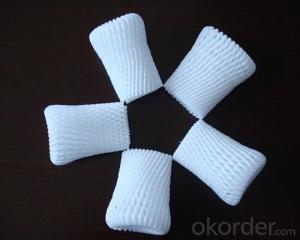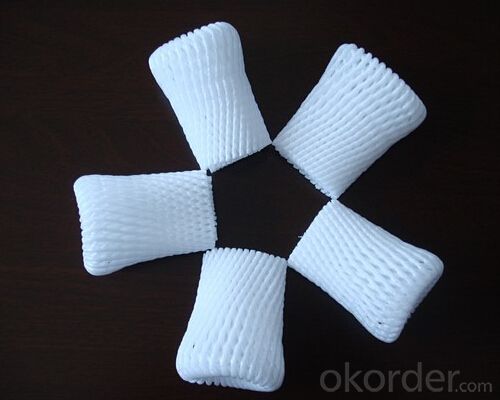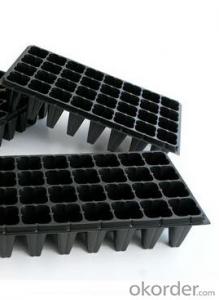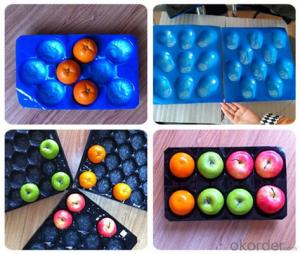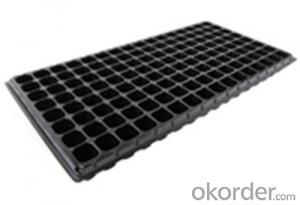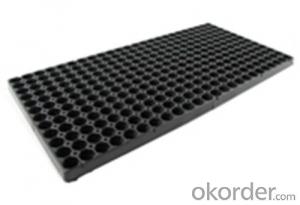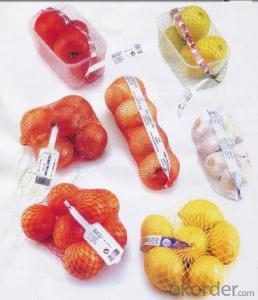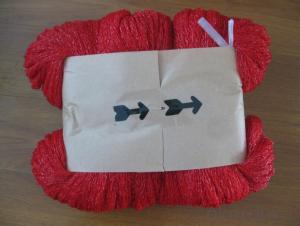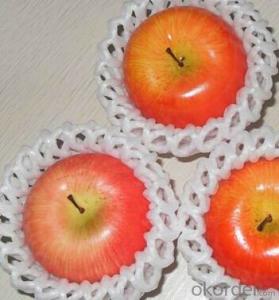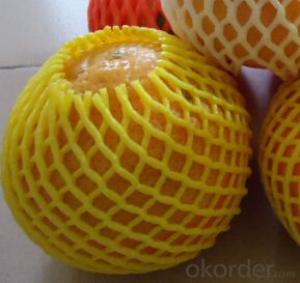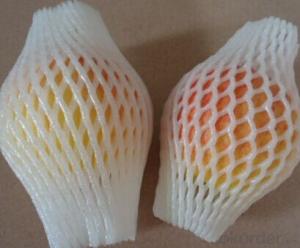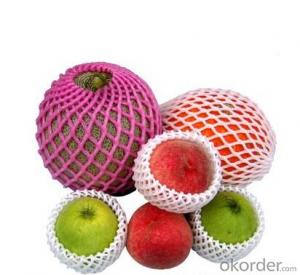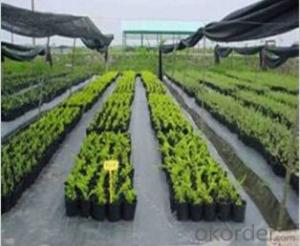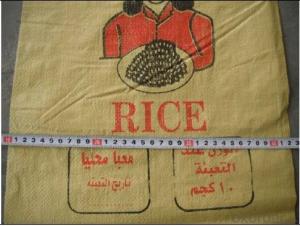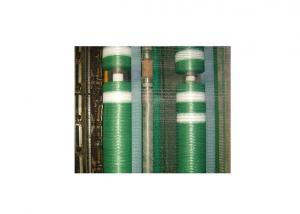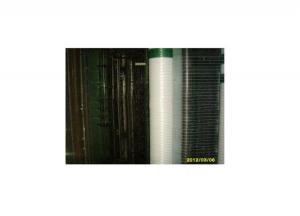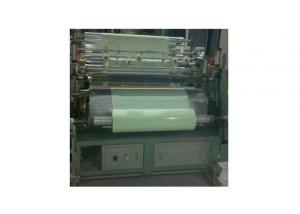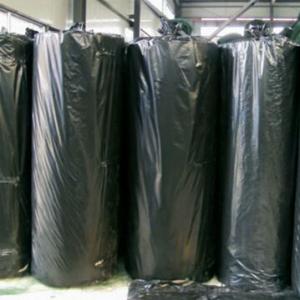Tubular foam netting packaging net with mesh
- Loading Port:
- Qingdao
- Payment Terms:
- TT OR LC
- Min Order Qty:
- 100000 pc
- Supply Capability:
- 100000000 pc/month
OKorder Service Pledge
OKorder Financial Service
You Might Also Like
Supermarket Fruit & Vegetable Pack Net
1. Scientific name : EPE/PE Foam Wine Packing Net Set
2. USE: Mainly used for packaging a wide variety of Wine,also used for protecting the fruit
3. Identified components: Tasteless and non-toxic
4. Material: EPE/PE
5.Size & Weight: any size is available
6.Color: white, pink, red, green yellow (can be according to your requirement)
7.food class
8. Function
used for the package for the fruits in growing season , in their transit or display in the supermarket to protect the fruits from damage and the pretty color can make your fruits look beautiful , can greatly reduce protection for transport layer of pressure and to extend the preservation time.
Specifications:
We can make any size as requested,including the diameter,lenth,thread diameter and quantity .also does the colors ,the lovely colors can help improve the products marketable.
1.EPE Foam Bottle Foam Sleeve Net
2.Mainly used to protect a wide variety of wine bottle
3.The color and size can be require
4. Low price with high quality
5. Tasteless and non-toxic
- Q: Are nursery trays suitable for starting tomato plants?
- Yes, nursery trays are suitable for starting tomato plants. They provide a controlled environment for the seeds to germinate and develop strong roots before transplanting them into larger containers or the garden. The trays also allow for easy monitoring and watering of the seedlings.
- Q: someone knows where they get the recycled mateiral for palstic bags ? I visited a website and they say their plastic bags use 100% recycled mateiral, but as far as i know, most landfill faciclites dont recycle plastic bags because it is a labour based job ,so where do they get these recycled material for plastic ? thanks
- The bags that are recycled (about 1%) are often gathered in the recycling bins outside of most major grocery stores.
- Q: How long does it take for plants to outgrow a nursery tray?
- The time it takes for plants to outgrow a nursery tray can vary depending on the specific plant species, growing conditions, and care provided. Generally, it can take anywhere from a few weeks to a few months for plants to outgrow a nursery tray and require transplanting into larger pots or containers.
- Q: Can nursery trays be used for bonsai seedlings?
- Yes, nursery trays can be used for bonsai seedlings. They provide a suitable environment for the seedlings to grow, allowing for proper drainage and ventilation. It is important to ensure that the trays are appropriately sized for the seedlings and that they have adequate drainage holes.
- Q: How do I choose ground cover for a shady area with poor drainage?
- When choosing ground cover for a shady area with poor drainage, it is important to select plants that can thrive in these conditions. Opt for shade-loving varieties such as ferns, hostas, and mosses that can tolerate moist soil. Additionally, consider ground covers that have spreading root systems or can form a dense mat, as they can help improve drainage over time. It is also advisable to amend the soil with organic matter to improve its drainage capacity.
- Q: I am doing a paper about the different views/opinions on plastic surgery. Do you support people who get plastic surgery? Are you for it or against it? Do you think it is a good or bad thing? Any input would be helpful!
- Do whatever makes you happy :)
- Q: What are the advantages of using plastic mesh bags for packaging produce?
- There are several advantages of using plastic mesh bags for packaging produce. Firstly, they provide excellent visibility, allowing customers to easily see and inspect the contents of the bag. Additionally, the mesh design allows for breathability, reducing the risk of spoilage by promoting air circulation. Plastic mesh bags are also lightweight and cost-effective, making them a practical choice for packaging and transportation. Furthermore, they are durable and can withstand the weight of heavy produce, ensuring that the bag does not tear or break during handling. Overall, plastic mesh bags offer convenience, protection, and enhanced presentation, making them an ideal choice for packaging produce.
- Q: What are the upcoming trends in the creation and use of sustainable agricultural plastics?
- <p>Yes, there are several future trends in the development of sustainable agricultural plastics. These include the increased use of biodegradable plastics made from renewable resources like corn and sugarcane, which can break down naturally in soil. There is also a growing focus on developing plastics with a lower carbon footprint and longer lifespan to reduce waste. Additionally, there's a trend towards improving recycling technologies to better repurpose agricultural plastics, and the exploration of bioplastic alternatives that can perform as effectively as traditional plastics but with less environmental impact. Innovations in nanotechnology are also expected to play a role in creating more efficient and sustainable agricultural plastics.</p>
- Q: basically I want the title of my next novel to be quot;Plastic Dreamsquot; but I don't know what to make it about. any ideas?
- plastic surgery, out culture and the media focus too much on looks and how sex sells, everything is so cosmetic, material world, and so forth that's what I would think of if I saw a book called Plastic Dreams
- Q: This question asks for methods through which farmers can lessen their environmental impact by employing sustainable materials in their agricultural practices.
- <p>Farmers can reduce their environmental footprint by adopting sustainable materials and practices in agriculture. They can use organic fertilizers and natural pest control methods to minimize chemical runoff. Implementing crop rotation and cover crops can improve soil health and reduce erosion. Farmers can also utilize renewable energy sources like solar or wind power for irrigation and other farm operations. Additionally, adopting precision agriculture technologies can optimize resource use, reducing waste. Recycling and reusing materials, such as water and plastic, can also contribute to a smaller environmental footprint. Overall, embracing sustainable agriculture practices not only benefits the environment but also enhances farm productivity and resilience.</p>
Send your message to us
Tubular foam netting packaging net with mesh
- Loading Port:
- Qingdao
- Payment Terms:
- TT OR LC
- Min Order Qty:
- 100000 pc
- Supply Capability:
- 100000000 pc/month
OKorder Service Pledge
OKorder Financial Service
Similar products
Hot products
Hot Searches
Related keywords
